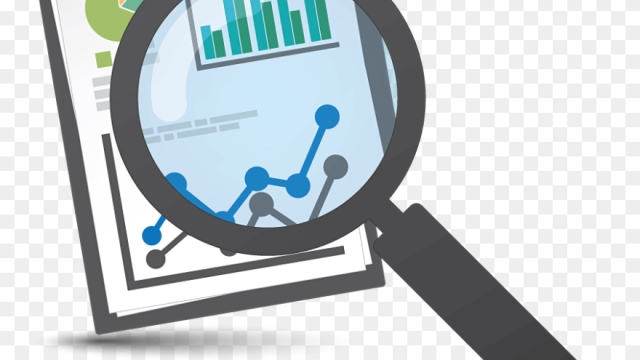Uncovering Insights: The Power of Research and Data Analysis

Research and data analysis have long been recognized as powerful tools to uncover insights, unlock new knowledge, and drive informed decision-making. In today’s rapidly evolving world, where information is abundant and complex, the ability to conduct effective research and analyze data is more crucial than ever before. From scientific studies and market research to social trends and technological advancements, research and data analysis serve as the bedrock upon which progress and innovation thrive.
In its essence, research is a systematic investigation that aims to answer questions, solve problems, or explore new ideas. It involves gathering relevant data, analyzing information, and drawing meaningful conclusions. By leveraging various methodologies, such as surveys, experiments, observations, or interviews, researchers can illuminate previously unknown truths and shed light on intricate phenomena.
However, research alone is not sufficient to provide actionable insights. This is where data analysis comes into play. Data analysis involves examining collected data, finding patterns, identifying trends, and extracting meaningful information. Through the use of statistical tools, software, and techniques, analysts can transform raw data into actionable knowledge, providing valuable insights that can drive decision-making and shape strategies across various domains.
Together, research and data analysis form a symbiotic relationship, reinforcing each other’s strengths. Research guides the collection of data, ensuring that it is relevant and purposeful, while data analysis empowers researchers to extract the hidden gems within this information. By employing rigorous research methodologies and sophisticated data analysis techniques, organizations, scientists, and individuals can gain a comprehensive understanding of complex issues, make informed predictions, and make better-informed decisions.
In the following sections, we will delve deeper into the intricacies of research and data analysis, exploring the methodologies, techniques, and challenges associated with these critical processes. We will uncover how these practices empower us to uncover insights, drive innovation, and ultimately navigate the ever-changing landscape of the modern world. So, let us embark on this enlightening journey of exploration and discovery, as we unravel the power of research and data analysis.
The Importance of Research
Research plays a vital role in uncovering valuable insights and driving informed decision-making. By conducting thorough research, we can gather relevant data and information that enables us to understand complex phenomena, discover new knowledge, and explore possibilities. Research provides a solid foundation for generating ideas, validating hypotheses, and making evidence-based conclusions.
With the ever-increasing availability of data, research helps us make sense of the vast amount of information and transform it into meaningful insights. Through systematic investigation and analysis, research allows us to uncover patterns, trends, and relationships, revealing the underlying factors that can influence outcomes. By studying data and conducting empirical studies, we gain a deeper understanding of the world around us, paving the way for advancements in various fields.
Moreover, research helps in identifying gaps in existing knowledge and addressing unanswered questions. It fuels innovation by pushing boundaries and exploring uncharted territories. Through rigorous investigation, researchers can challenge conventional wisdom, test assumptions, and propose fresh perspectives. Consequently, research fuels progress, supporting the development of new theories, methodologies, and technologies that shape our societies and improve our lives.
In addition to its role in advancement, research is also crucial for decision-making in various domains. Decision-makers rely on research findings to inform policy development, strategic planning, and resource allocation. Research provides necessary evidence to evaluate the effectiveness of interventions, measure the impact of programs, and guide organizational practices. Without research, decisions would be made blindly, putting organizations and societies at risk of poor outcomes and missed opportunities.
In conclusion, research forms the bedrock of understanding and progress, unlocking valuable insights and shaping our collective knowledge. It helps us make sense of complex phenomena, discover new frontiers, and inform decision-making processes. By recognizing the importance of research, we harness the power to uncover insights, drive innovation, and ultimately shape a better future.
Process of Data Analysis
In the field of research and data analysis, understanding and following a systematic process is crucial for uncovering meaningful insights and making informed decisions. The process of data analysis can be divided into three key steps: data collection, data cleaning, and data interpretation.
Data Collection: The first step in the data analysis process is to collect relevant and reliable data. This involves identifying the data sources, such as surveys, experiments, or public databases, and gathering the necessary information. It is important to ensure the data collected is comprehensive and representative of the research objectives.
Data Cleaning: Once the data has been collected, it is essential to clean and organize it before conducting any analysis. Data cleaning involves removing any errors, inconsistencies, or missing values. This process ensures that the data is accurate and can be effectively analyzed. Various techniques, such as data validation and transformation, are used to clean the dataset.
Data Interpretation: After the data has been collected and cleaned, the next step is to interpret the findings. This involves applying statistical methods and data visualization techniques to uncover patterns, trends, and relationships within the data. Data interpretation plays a crucial role in drawing meaningful insights and informing decision-making processes.
By following a structured process of data analysis, researchers can effectively analyze data, uncover valuable insights, and make data-driven decisions. Through careful data collection, cleaning, and interpretation, researchers can unlock the power of research and data analysis to drive innovation and solve complex problems.
Qualitative Dissertation Writing Services
Utilizing Insights for Decision Making
Through research and data analysis, we gain valuable insights that can inform our decision-making process. These insights provide us with a deeper understanding of the subject matter at hand, enabling us to make more informed and effective decisions.
Research allows us to gather information, collect data, and explore various perspectives on a particular topic. By conducting thorough research, we can uncover trends, patterns, and relationships within the data that may not be apparent at first glance. This deeper level of understanding empowers us to make decisions based on solid evidence and facts, rather than relying solely on intuition or assumptions.
Data analysis, on the other hand, involves the examination and interpretation of data to identify meaningful patterns and draw conclusions. By analyzing data, we can identify key insights that can guide our decision-making process. Whether it’s analyzing customer behavior, market trends, or performance metrics, data analysis provides us with the quantitative evidence needed to make informed choices.
Utilizing these insights gathered through research and data analysis can greatly enhance our decision-making abilities. By incorporating evidence-based findings into our decision-making process, we can minimize risks, identify opportunities, and optimize outcomes. By leveraging the power of research and data analysis, decision-makers can have confidence in their choices, knowing that they are grounded in accurate and reliable information.
Remember, when it comes to making important decisions, research and data analysis are invaluable tools that can provide us with the insights needed to make informed choices.



